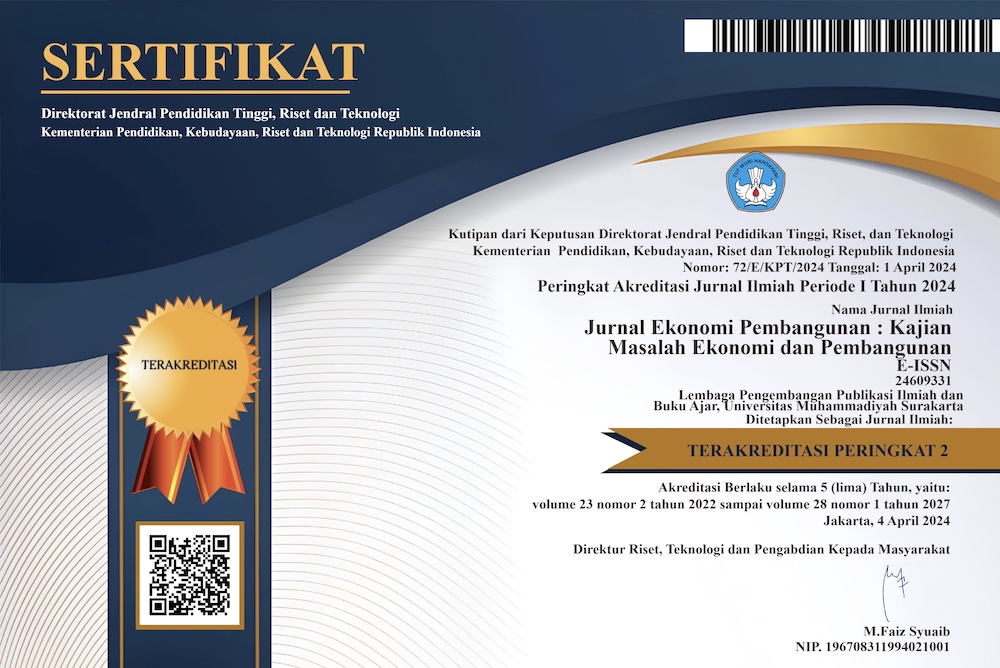Aims and Scope
Aim
Jurnal Ekonomi Pembangunan: Kajian Masalah Ekonomi dan Pembangunan (JEP: KMEP) aims to bridge environmental and energy economics, development studies, and public policy by publishing analytically rigorous and policy-relevant research that addresses pressing challenges in emerging economies.
Scope
The journal covers a wide range of topics within development economics, organized into the following four key areas:
1. Environmental & Energy Economics
This section focuses on the intersection of environmental sustainability and economic development, particularly in the context of how environmental factors influence and are influenced by economic growth and policies. We encourage submissions that explore a variety of issues, including (but not limited to) the natural resource management, environmental degradation, climate change adaptation and mitigation strategies, and the economics of renewable energy. Research on econometric analysis of energy transitions, economic impacts of environmental regulations, biodiversity conservation, pollution control, and sustainable development practices are particularly welcome.
2. Development Economics
Development Economics is at the core of our journal's mission. We seek papers that address the challenges and opportunities in developing economies, with a focus on understanding and promoting sustainable and inclusive growth. Topics of interest include (but not limited to) economic resilience, financial innovations, human capital development, income inequality, economic growth models, and the role of institutions in development. We also welcome research on rural and urban development, gender and development, and the impacts of globalization on developing economies.
3. Applied Econometrics & Public Policy
This section is dedicated to research that applies advanced econometric techniques to inform public policy across various domains. We invite submissions that use methods such as ARDL models, panel data analysis, and other econometric tools to analyze issues like (but not limited to) labor productivity, foreign direct investment, health economics, education policy, social welfare programs, and poverty alleviation strategies. Research on fiscal and monetary policy, trade policy, and the evaluation of government interventions is also of interest.
4. Tourism Economics
Tourism is a vital sector for many developing economies, and this section focuses on the economic aspects of tourism development. We welcome research on the economic impacts of tourism such as (but not limited to) sustainable tourism development, tourism policy analysis, tourism resilience in urban and rural areas, and the role of tourism in economic diversification. Additionally, research on cultural tourism, ecotourism, and the integration of tourism with other economic sectors is highly valued.














